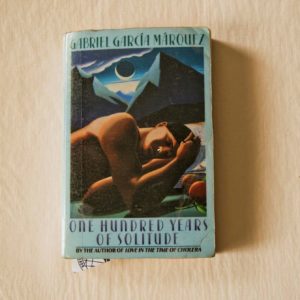A whole world will envelop you, the happiness, the abundance, the inconceivable vastness of a world. Live for a while in these books, learn from them what you feel is worth learning, but most of all love them. This love will be returned to you thousands upon thousands of times, whatever your life may become—it will, I am sure, go through the whole fabric of your becoming, as one of the most important threads among all the threads of your experiences, disappointments, and joys. (Rainer Maria Rilke. Letters to a Young Poet. Trans. Stephen Mitchell. NY: Modern Library, 2001, p.17)
For the second commentary on Rilke’s Letters, (you may read the first here) I choose the above quote for its depth. This quote does not seem to say much except to give favorable remarks on two books: Six Stories and Niels Lyhne by Jens Peter Jacobsen. But it raises a few good questions: Why would Rilke recommend these books to Kappus––the young poet to whom he addresses––and why does he think they would provide the experiences he describes? These questions petition a little more attention for the above quote. In their examination it is apparent that Rilke has found within the pages of his recommendation what he hopes Kappus would also come to know. The quotation offers that within the worlds of those books were tools Rilke found essential and enriching to his “experiences, disappointments, and joys.”
But the wallpaper behind the quote offers a faint suggestion that the treasures Rilke found in these works may not be the same that Kappus would discover or need to discover––unless they are of similar minds and needs. The allure of the quote is its instigation of what happens when one finds a book one can love. It seems to say the book that one ought to love does not only teach one of new worlds, but decodes the world that is one. So that even after one vacates its pages, the lessons learnt remains an important lifetime guide. The stress then is the necessity to love the work. Perhaps in loving the work, one is essentially loving oneself. So though Rilke recommends Jacobsen’s books as the sort a reader could love, it does not necessarily mean they are the books that Kappus, or readers of Letters need to love, but rather that there exist works that would require loving, and through their loving lies a redemption of self.
That “a whole world” looking to embrace one in “happiness,” “abundance,” and “inconceivable vastness” exists in words sounds a touch dramatic, yet the Bible insists the world became through words. And if you do not buy the Bible’s narration, then all you need do is take another look at these letters: I am reaching you in your world, from my world, with words. Thus words bridge worlds. In fact, so much of what surround us are the products of words. The concrete forms which ideas take are often built into place by words. From this vantage point, the concept that through loving words are stitches into “the whole fabric of [one’s] becoming” significant “threads” that reward one “thousands upon thousands of times” a return of the invested love is merely a rewording of daily experiences. And yet finding this advice seemingly an exaggeration is not at all odd; seeing as Rilke is referring to that which, so familiar, retracts the ability to be easily identified and appreciated. Because, often, what is right under one’s nose is most difficult to detect.
By spelling out in words the familiarly-unknown, form is created for the imagination in ways that aid discovery of truths that are already known subconsciously. This is perhaps what Rilke is saying to Kappus, that the scope of a good book is that which reveals our own worlds to us, translating our own truths––which, too attached to us, we fail to know properly––in ways we can take notice of and learn to sieve in love. Thus teaching one what one needs to proceed through “whatever your life may become.”Most importantly, it reflects the world that we are and can be.
Lastly, a little on the jolting phrase, “live for a while in these books.” This, like much of what Rilke says, is a simple way of suggesting a lot. For is it not by living that one learns? And does not living require every fiber of one’s being? And does not living arrests one’s intellect and demand decisions of one? And thus by living “for a while in these books” one may say that Rilke means becoming cognizant of such worlds. Thus through living in such worlds one can then access and cultivate love for the familiarly-unknown. All very necessary in developing a way of seeing, feeling and communicating in ways that are at once a secret and common language between those who inhabit, attentively, the worlds of words.
Obviously it is important for the aspiring writer, whose craft is a creation of worlds with words, to learn to find her own home within this sphere. And the quote really hammers at the necessity to not only make these discoveries and live them through one’s imagination by the guiding hands of another’s imagination, but an assurance that the world that one is, touches other worlds, and the world that one is that which others would gladly visit to “learn from,” and to “to live” with for the sake of love.
—
Jane A. Odartey



